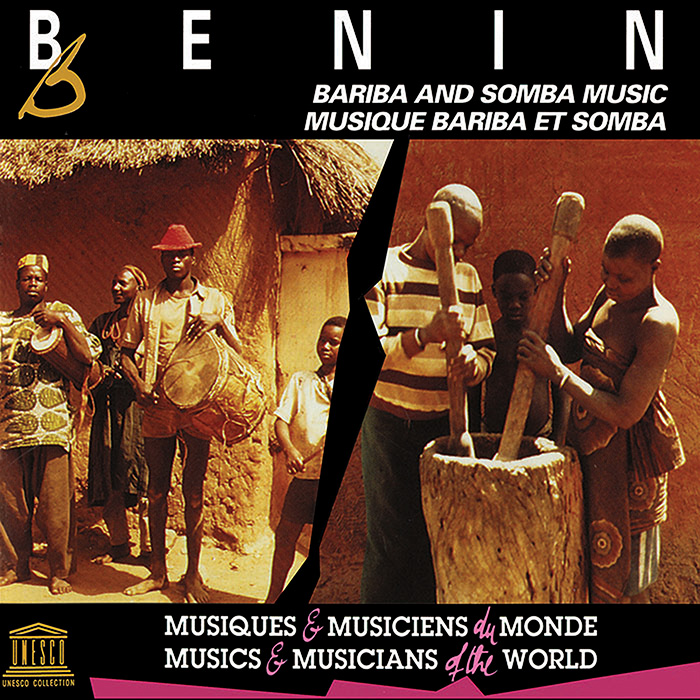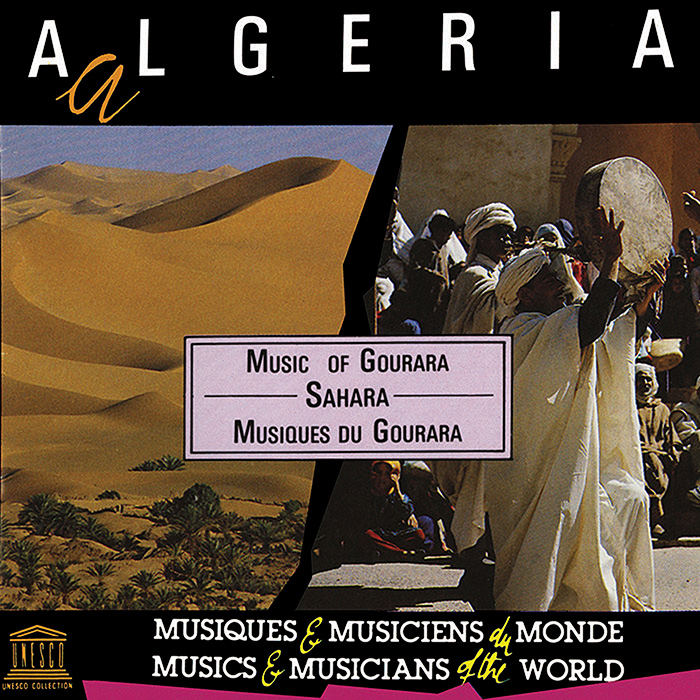-
UNESCO Collection Week 20: Sounds of the Sahara
This week’s albums, Algeria: Sahara – Music of Gourara and Benin: Bariba and Somba Music, originate from the vast Sahara Desert. This week, the region is the site of the annual Cure Salée (Salt Cure), or Festival of the Nomads. The festival takes place in Niger in a deep stretch of the Sahara between Benin and Algeria and is known as a social gathering and match-making event.
GUEST BLOG
by Christopher Ford
As a musician in one of the world’s more privileged societies, it can be easy to forget that music is more than a luxury. It fills a distinct role in our culture, though in modern life its greater purpose can seem hard to pinpoint. In my view, the best music comes from a place of sincerity in which the creator’s motivations are clear.
The recordings on Benin: Bariba and Somba Music reflect such music, made to serve a specific need. Identifying the role of this music is made easy given track titles such as “Song for grinding karite nuts” (with lyrics more lovely than you might guess, translated for the listener in the liner notes) and “Song to carry the corpse.” There are also pieces specifically for dancing, as well as a handful of more poetic excursions, not so different from the music of today’s singer-songwriters. These songs are intended to tell a story, to pass on a tradition.For an amateur musicologist like myself, Benin is a must-hear, in particular for the fantastic capturing of the kakaki (telescopic metal trumpets) in “Music in praise of Oru Soru” (track 3) and the bohu guru (a whistle, similar to an ocarina) in “Music played when setting out for a hunt” (track 2).
Head north out of the savanna into Africa’s northern edge and you come to Algeria, the source of Algeria: Sahara – Music of Gourara. Gourara is a province of the Algerian Sahara approximately 750 miles south of Algiers.As with Benin: Bariba and Somba Music, you find tracks with a purpose (some very specific, such as “Song for the insemination of the date palm”) and with notable repetition, though melody is more prevalent to my ear in this set. The singers’ voices are more resonant, the drums fuller, the execution more precise. Not that perfection is my sole criterion here, but some listeners may find this set more seductive than the slightly harsher recordings from Benin.
The songs on Algeria: Sahara – Music of Gourara feature vocalists much more prominently, often with a group in unison chant, and sometimes in response to a leader of the song. The meditative quality of these chants is undeniably entrancing. Indeed, it seems that this music may generally serve a more overtly religious purpose (though not necessarily more spiritually meaningful than the music from Benin), with songs “We bow to you” (track 2) and “Praised be the Lord” (track 3) as examples.
When I first took on writing about these two collections, I thought there might be a clear common reference point based on the shared status of their source locations as French colonies. The reality, however, is much more complicated; the ancestry of this music is not that obvious. What is today known as Algeria has seen many empires come and go: the Carthaginians, the Romans, the Byzantines, the Turkish Ottomans, and the French. And there are more.
I can’t know how this dense history has had an impact on the music heard on Algeria: Sahara – Music of Gourara, but African, Jewish, Muslim, and other musical traditions can be heard here. It is markedly different than the music from Benin, a country with a different history. The region in which Benin resides is further from Europe and the Middle East, and perhaps as a result the music is less influenced by the cultures that factor more prominently in Algerian history.

©1994 AUVIDIS. Photo: Simha Arom
The liner notes that accompany both of these sets provide much insight into the histories of the music heard on them, so I won’t attempt to provide any deeper analysis than what I have already. I will say, however, that both of these collections, along with much of what Smithsonian Folkways preserves for the world to enjoy, provide wonderful examples of music serving what I think is its highest purpose: unifying those with a common goal in spirit and mind.
Christopher Ford is a Des Moines, Iowa-based songwriter who writes, records, and performs music as Christopher the Conquered, and plays a variety of instruments in other groups. He is also the cofounder and director of Maximum Ames Records, and serves as the program manager for the Des Moines Music Coalition.
UNESCO Collection Week 20: Sounds of the Sahara | Smithsonian Folkways Recordings



